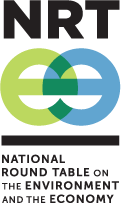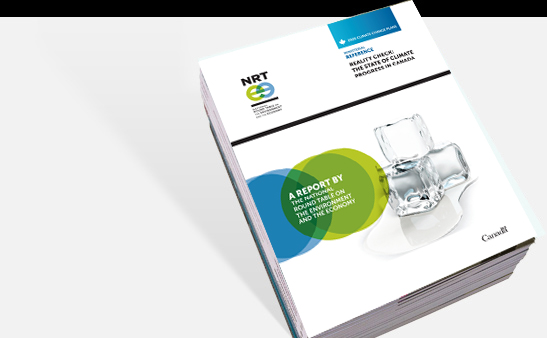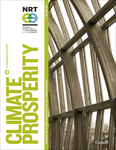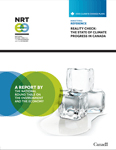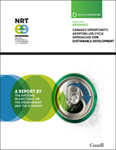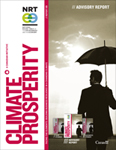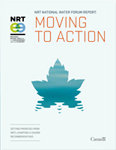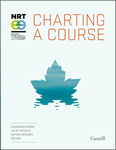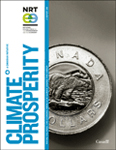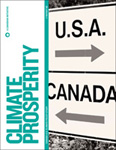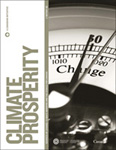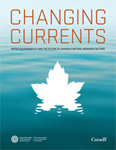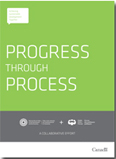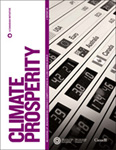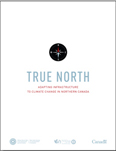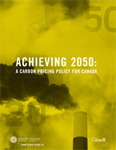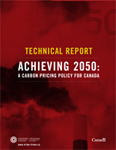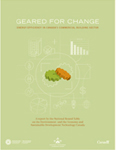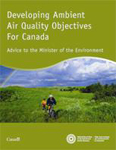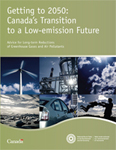Section 4 – Moving to Action: NRT National Water Forum Report
PERSPECTIVES
Toward the end of the Water Forum, three distinguished speakers provided their final perspectives on both the report and what they heard during the day. This section highlights a few of those views that either add to or build upon some of the priorities and opportunities proposed during the event.
DAVID B. BROOKS, DIRECTOR, WATER SOFT PATH RESEARCH, POLIS PROJECT ON ECOLOGICAL GOVERNANCE
Dr. Brooks’ comments were linked to the themes of renewing the social licence for the natural resource sectors to operate and increasing the contribution of the sectors to public welfare. He presented three priorities for consideration. The top priority has to be to measure water use. In the absence of information about water use, proposals for greater efficiency and conservation will be little more than guesswork. Regrettably, except in urban areas, where few components of the resource sector are based, stable long-term funding for measuring water use has been declining, not increasing, in recent years.
The second priority is to put a value on water and then to start charging water users on a volumetric basis, echoing the strong support of the forum participants earlier in the day. Finally, as a third priority Dr. Brooks suggested that while the recommendations in the NRT report are all relevant for the agriculture sector, they are not directly applicable to agriculture. Therefore Dr. Brooks urged the NRT to research and develop a set of recommendations for agriculture that begin from what has just been published in Charting a Course.
JEAN CINQ-MARS, COMMISSIONER OF SUSTAINABLE DEVELOPMENT, QUÉBEC
Mr. Cinq-Mars agreed with all the recommendations that participants deemed to be of highest priority, saying that Canada has to move forward with a national water strategy especially as Canada is negotiating a free-trade agreement with the European Union (EU). In this regard, Canada has to be aware of the EU’s broad environment policies to ensure that its own policies are consistent for trade and environment purposes. However, Canada is living through a period of constraint and cannot tackle everything. Given this, one way forward could be to manage water on the basis of risk management. With climate change, companies, especially those in the natural resource sector, face two kinds of risks today: reputational and environmental. First, reputational risks affect Canadian firms operating internationally as they are exposed to more scrutiny and audits. To avoid this risk, Canada and Canadian firms could adopt internationally acceptable policies, standards, and best practices, including water monitoring reporting practices. Second, the environmental risk comes from changing environmental conditions disrupting companies’ supply chains as a result of flooding, drought, shipping issues, ice-roads melting, etc. These risks, if not managed wisely, can significantly affect the profitability of a firm.
Mr. Cinq-Mars endorsed the NRT report conclusions and recommendations that called for further exploration of water governance and management at a regional and/or watershed scale. Such case studies would help to better understand the potential implications and application of what the NRT’s research has directionally provided.
CAIRINE MACDONALD, DEPUTY MINISTER, ENVIRONMENT, GOVERNMENT OF BRITISH COLUMBIA
In August 2010 all Canadian premiers signed the Council of Federation (CoF) Water Charter. Cairine is the chair of its Water Stewardship Council, the group tasked with implementing the Charter. This group is tackling the Charter commitments with a whole-of-government approach in partnership with business, ENGOs, academia, and interested citizens, an approach that she noted is consistent with the #1 priority of the NRT’s Water Forum, which is to form a coalition to address collaborative governance processes. Many of the commitments in the Charter support the NRT recommendations: making water use more efficient by challenging water-use sectors to prepare water conservation and efficiency plans, enhancing water monitoring efforts, and cooperating and sharing information. Cairine undertook to bring the NRT’s recommendations to the CoF for consideration.
Cairine reinforced the idea that water has value, and that Canadians must start to treat water as a valuable resource. She suggested that a common language is needed to say that water has value, to pinpoint the common components of water that are valued, and to recognize how that plays out in different situations and regions of the country. Many lessons outside the water realm illustrate how to put a value on a resource. The example she cited was electricity deregulation in Alberta, especially as it pertains to time of use and differentiation between different kinds of power. Possible parallels can be drawn between electricity deregulation and water (the latter in terms of its temporal use and different uses by the natural resource sectors), and valuable lessons learned as we move forward on valuing water.
Finally, Cairine stressed that there is no more urgent conversation today in Canada than that involving both the environment and the economy, emphasizing the importance of the work the NRT has undertaken in its water program. Implementing many of the solutions for issues of the environment and the economy will require better communication. When tackling tough issues such as water management and governance, we need to better understand the linkages between the environment and the economy, that the two are synergistic. In closing she emphasized, “We as Canadians can get it right.”
